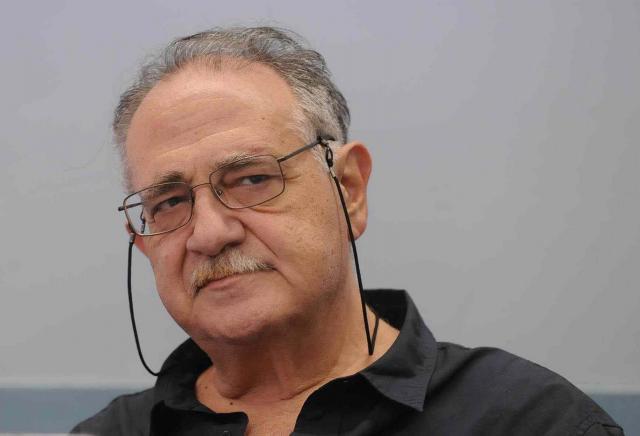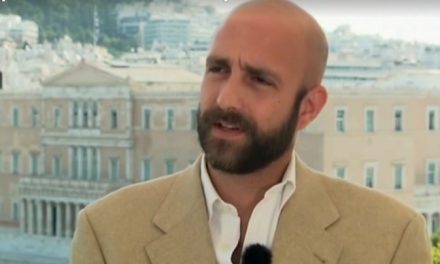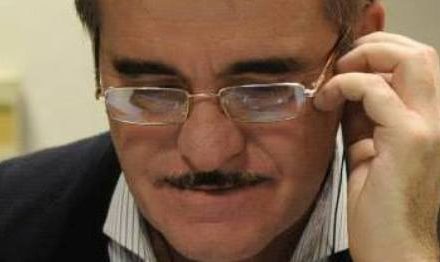Kostas Vergopoulos is professor of Political Economy at the University of Paris VIII. He has written several books and his articles are regularly published in the Greek and international press. He talked to our sister publication Grèce Hebdo* on the need to establish mechanisms that stabilize transfers among member-states and a European Monetary Fund that would take over the excessive debts; the importance of rebooting Greek and euro zone economy; multi-speed Europe and the need to stay on the path of “more Europe” instead of giving into nationalistic pressures, and finally, on the stakes of the next presidential elections in France.
There can be little doubt that Europe is going through an uncertain phase, even one of decomposition. Do you think that European project could still gain a new impetus?
There is one thing that is certain: the founding countries of both the European Union and the common currency, the euro, are still holding on to this Union. When they are trying to take the necessary actions for the EU’s cohesion, durability, functioning and success, they are doing it to prevent its breakup. Like Mario Draghi, the President of the European Central Bank, who, since 2012 has pledged that his institution will take all necessary measures, even if they are “unconventional”, to ensure the success and sustainability of the common currency.
So, if I am concerned about something, it is not so much the future of the Union or the common currency, but above all the fact that their sustainability is not assured in advance and by the standard mechanisms provided for in the founding Treaties. Instead, everything happens at the last minute, with enormous delays, with ever-increasing costs, and above all, as President Draghi himself acknowledges, by using “unconventional” measures, not provided for in the Treaties. The founding Treaties will have to be amended as a matter of urgency in order to make the European system more coherent and functional, more secure and more transparent.
Multi-speed Europe is once again on the European agenda. What are the opportunities and threats of such a prospect?
Multi-speed Europe is not a new concept, since it existed at least since the Maastricht Treaty (1992) in the form of the “enhanced cooperation” procedure among member countries. The established monetary zone is already an example, since only 19 countries out of the 28 of the Union -or 27 after UK´s withdrawal- participate in the common currency. Nevertheless, if today’s European leaders are thinking about reviving this already existing idea, I imagine that it would be to allow some countries to not immediately submit to the decisions of Brussels, like the four countries of the Visegrad group (Poland, Hungary, the Czech Republic and Slovakia) especially in regards to their refusal to host migrant populations.
However, this would be a serious concession in the face of rising nationalist pressures, and therefore a departure from European principles. I believe that Europe will not gain anything by giving into nationalist pressures; instead it should confront them with more European solutions. On the other hand, I imagine that if some countries are allowed to slow down, it means that others intend to accelerate, especially those in the euro area. I think it is time for the euro area to have a European Monetary Fund that would take over the excessive debts of the euro member countries. Let us not forget that the euro area is currently the most indebted region in the world, with total debt exceeding 100% of its GDP. In all similar cases around the word, the national central banks are busy reducing the load of debts, so that their economies can restart.
This is the case with the FED in the United States, the BoJ in Japan and the Central Bank in China. In the euro zone, since mechanisms for stabilizing transfers among member-states are still refused by Germany, it is time to set up other equivalent mechanisms that do not increase the burden on taxpayers. But to do this we definitely need more Europe and no less; what we need above all is a more significant role for the European institutions. One example would be be the issuance of Eurobonds by the ECB or the ESM, financed, of course, by the markets and under the guarantee of the whole of the euro zone. Another example would be the takeover by the ECB or the ESM of public debts exceeding 60% of GDP. Another thing to do is undoubtedly abandoning austerity policies, which actually produce recessive effects for the whole of the euro zone.
The euro will not be able to compete with the dollar to become a global reserve currency as long as the European economy is not rebooted. In any case, it is urgent to launch new European measures and policies, because Europe is already approaching stagnation; this, along with the very high unemployment rates are already feeding the disappointment of the popular strata and the rise of protest and of right-wing populism in a growing number of European countries. Europe is not condemned to disappear, it has a future, but only if it keeps the promises of its founders. The 1957 founding Treaty of Rome promised convergence of the standards of living of all the member countries. If today some people think that they can replace the principle of convergence with that of divergence, Europe will no longer have any interest for the people. I believe that Europe’s success is always the path of “more Europe”; the return to nationalist solutions would be a regression, even for those who today demand secession.
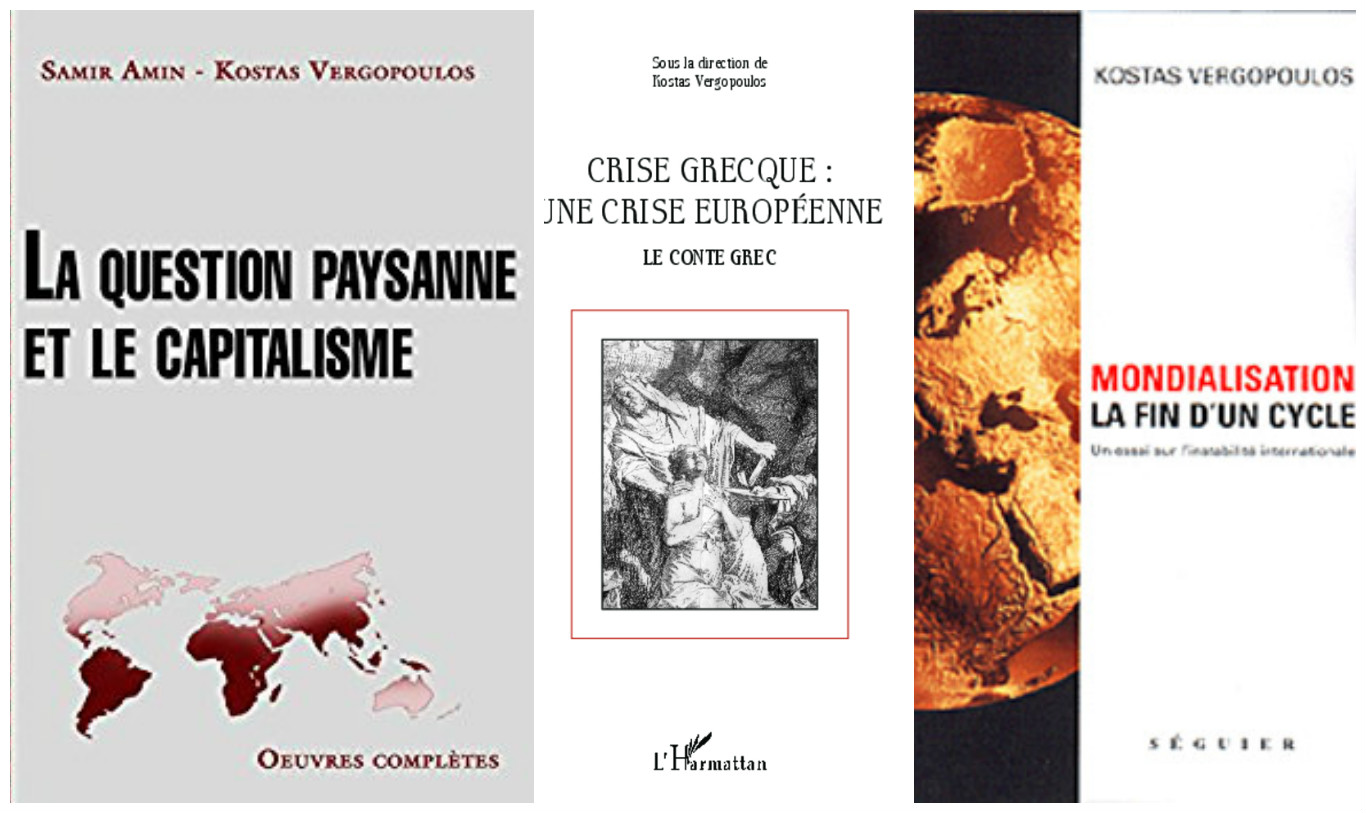
Will there be a place for Greece within this new framework?
Recently, only a few weeks ago, French Prime Minister Bernard Cazeneuve and German Chancellor Angela Merkel acknowledged in their joint statement that Greece belonged “at the heart” of Europe. What is more, this comes very naturally, given the historical, cultural and geopolitical importance of Greece in a restless and insecure neighborhood. I ofter have the impression that Europeans or Americans have a much better image of contemporary Greece than the one Greeks internalize for themselves.
Has the euro zone benefited from the IMF’s experience in battling public debt crises? What is your assessment of the role of the IMF as regards of the Greek crisis?
The IMF is already capitalizing on the experience of crisis management in 180 countries around the world. However, in the case of Greece, the IMF found itself involved in a crisis management that was designed and implemented by the Europeans and notably, by Germany. The IMF has already warned that the programs applied in Greece were wrong, as they caused more recession than was necessary or desirable. Above all, the IMF puts forward as a priority the recovery of the economy. Greek economy is now in the confines of of an “unsustainable” debt -meaning debt that is impossible to pay off- that the Germans still refuse to restructure and of the requirement for a primary budget surplus of 3.5% of GDP. These two constraints must be removed if Greece is to find its way back to economic recovery. I think that, despite everything, and thanks to the IMF’s insistence, these two constraints will be removed, one way or another. If a country is over-indebted, there is no point in imposing austerity policies that make servicing the debt even more difficult.
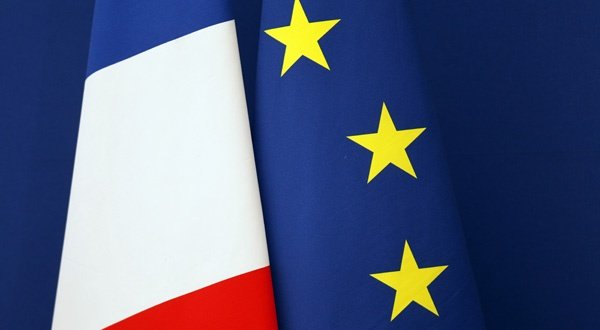
Looking towards France. What do you think are the stakes of the presidential election for France on an economic, identity or even European level?
France, a founding member of the European Union, is still the country where all the problems of the European region and all the influences between North and South, East and West intersect. It is true that the European project is already being intensively contested; however this is mainly coming from the extreme Right, from a sovereignist and nationalistic point of view. On the Left side, the disagreement with the European project emanates from bad performance in jobs and unemployment, however on the Left side there is no wholesale contestation of the European project, but specifically of the current austerity policies that stop Union from consolidation its place in the world. Undoubtedly, the French presidential election will be an important test for the future of the Union as a whole. All in all, I think that in France the contestation of the current austerity policies has still much more traction than the stance of the Euro-skeptics who -following the example of the United Kingdom- want to leave the Union .
Marine Le Pen surfs the wave of French people´s urgent problems, such as the issue of unemployment and the jobs relocation, but actually she does not present convincing alternative proposals. France has a great economic, political and cultural potential: nowdays, its problem is not that it has to submit to Brussels, as Marine Le Pen claims, but above all that it lacks political leaders to match its potential. Nevertheless, in order to have them, it seems more realistic to seek them within the European framework than outside, to try to transform and improve the functioning of the European edifice than to abandon it. Moreover, and in view of the recent electoral results in the Netherlands, it would seem that the contestation of the European project is reaching its limits. It is now time to rethink the European project instead of leaving it, especially when, in Germany itself, we are witnessing the surge new and successful approaches for a more solidary and cohesive Europe, on the Union level as well as on the euro zone level.
Interview by: Irini Anastopoulou, Kostas Mavroidis and Maria Oksouzoglou
Translation from French: Ioulia Livaditi
TAGS: ECONOMY & DEVELOPMENT | EU POLITICS | RECOVERY

